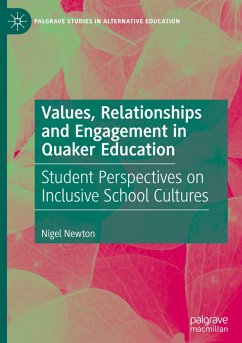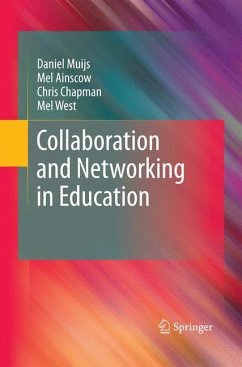This book provides a unique critical perspective on the importance of values to school culture. Drawing on research in Quaker schools in England, and the perspectives of students, it challenges the idea that school evaluation should be primarily based on measurable outcomes and argues that values matter more to learning than is often acknowledged. Furthermore, the book provides important insights on how to research schools that claim to hold similar values, from multi-academy chains to other so-called faith schools. Throughout the text, the author underscores the importance of values to students' dispositions, in order to engage with the learning opportunities their schools provide. He argues for seeing schools as places where equality, inclusiveness and mutual respect should be central, not only to help students understand our fragile, multicultural democracy, but also because these values open up the possibility of learners' increased engagement with curriculum knowledge.
Bitte wählen Sie Ihr Anliegen aus.
Rechnungen
Retourenschein anfordern
Bestellstatus
Storno








